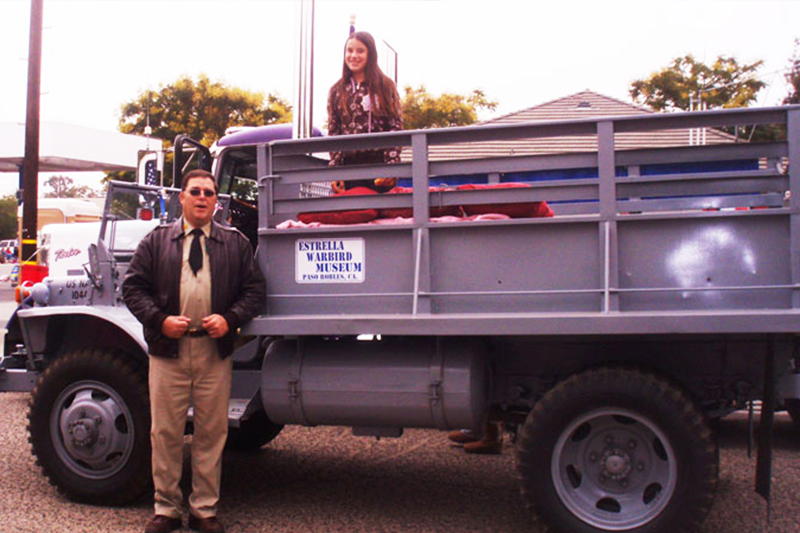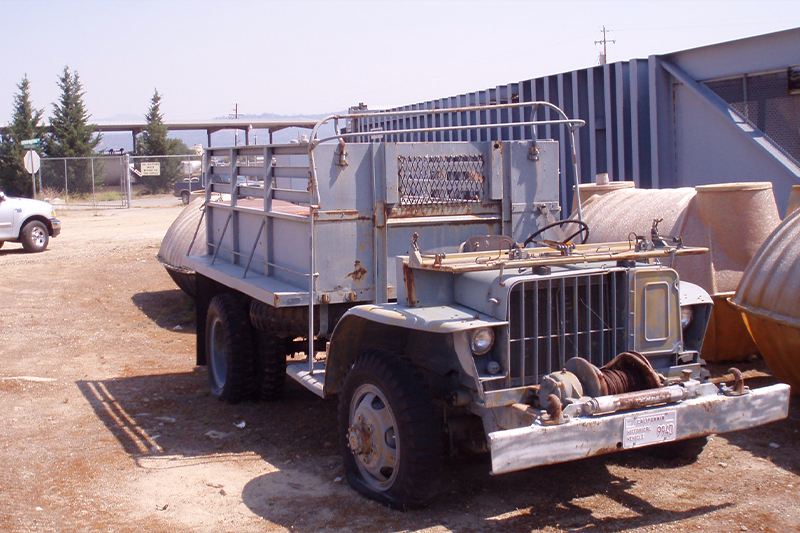Specifications
| VIN: | 218757 | |
|---|---|---|
| License #: / Mfg # produced | 510 S / 104476 | |
| Engine: | Ford G8T Flathead 6 cylinder | |
| Transmission: | 4 speed N/Sync | |
| Trans. Case: | 2-Speed Hi/Lo | |
| Fuel: | 70 octane min. | |
| Capacity: | 40 Gallons | |
| Payload: | 3,000 lbs | |
| Paint: | US Navy "Ocean Gray" | |
| Winch: | 10,000 lb Bradewn | |
| Weight: | 7250 lbs | |
| No. Produced: | 15,000 +/- | |
| Status | Working Display | |
| Owner: | Estrella Warbird Museum | |
History
The Ford GTB, called the “Burma Jeep”, was produced during WWII and was used primarily by the US Navy and Marine Corps and used exclusively in the Pacific Theater during World War II, many used on the "Burma Road". Its Ordinance Standard nomenclature number was G-622. Ford produced the low silhouette, short and maneuverable GTB in five models collectively called the G-622.
Total production of the 1-½ ton models was over 15,000 units, including these variants:
- GTB truck, Cargo
- GTBA truck, (US Navy)
- GTBB truck, Wrecker, (Rare, only 50 produced)
- GTBS truck, Bomb Service with crane (US Navy)
- GTBC truck, Bomb Service with crane (USN, improved)
The Burma Jeeps were powered by a Ford 6-cylinder flathead gasoline engine producing 90 horsepower. They were 1-½ ton capacity, 4-wheel drive with a 4-speed transmission and a 2-speed transfer case. The Burma Jeep on display at Estrella WarBirds Museum has dual real wheels, 4-wheel drive, and a 10,000 lb Braden MU-6 winch.
Ford records indicate the paint color specified by the US Navy was “Ocean Gray” for all Navy contracts. The G-622 GTB vehicles were produced with and without a 10,000 lb. Gar Wood or Braden front mounted winch. All models except the GTBS had dual rear wheels. The cowl covering the engine separated the cab area, and the passenger seat was a light metal frame, which faced the driver, and could be enclosed by raising the windshield and installing a canvas top. The cargo truck had troop seats and bows for a canvas cover.
This truck (GTBA model) was probably built in July 1943 at the Edgewater, NJ Ford Plant. After the war, it was purchased by the MacGillivry Ranch from the US Navy at Pt. Magu, and used as a ranch truck. In 1998 it was donated to the Estrella Warbird Museum, and in 2008-2009, it was restored with funds provided by the McGillivry Family. Restoration included complete brake overhaul, new passenger seat, upholstery, tires , and a complete paint job.









